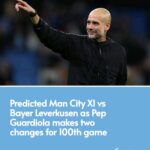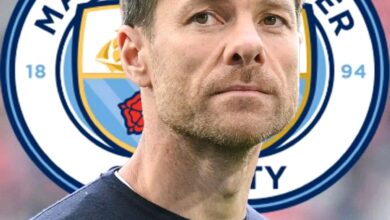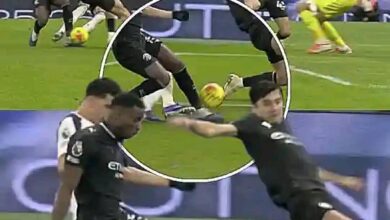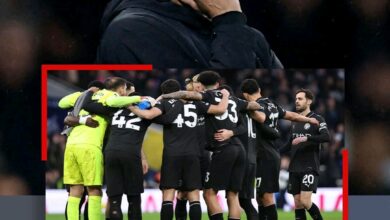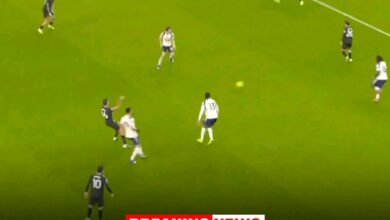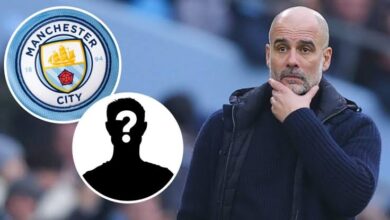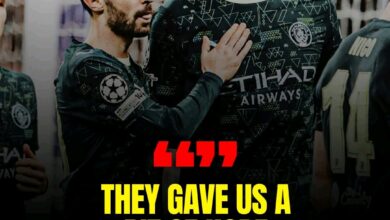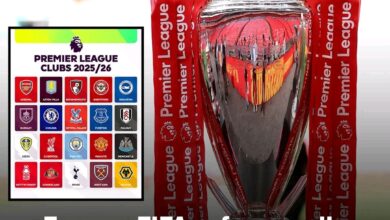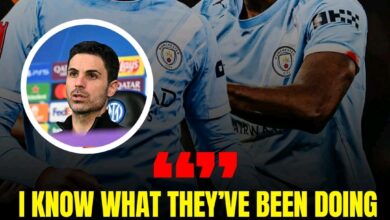Spare a thought for Phil Foden tonight – Erling Haaland’s lack of perfection is denying him some extra assists
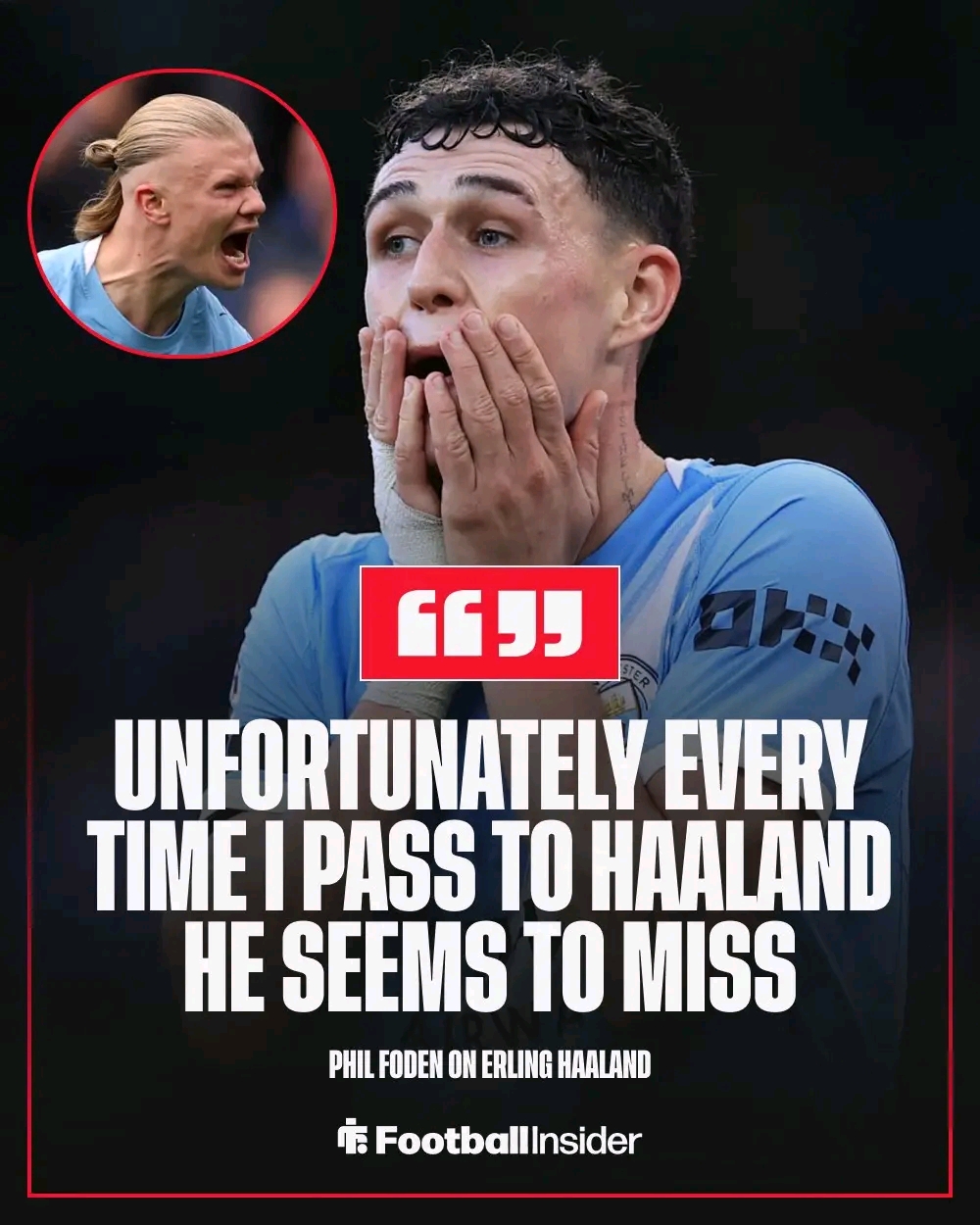
Phil Foden smiled as he looked back on another night at the Etihad that reminded him why Manchester City remain one of the most terrifying sides in world football. The young Englishman had just watched Erling Haaland once again do what he does best — turn a quiet game into a personal highlight reel of destruction. Foden shook his head and said what everyone else in the Premier League already knows but can’t quite accept: “You can mark him all you want, but he will still score.”
The story of that evening against Everton was a familiar one for City. Pep Guardiola’s side were patient, methodical, and slightly frustrated for the first forty-five minutes. The visiting team had packed their defence, closing the spaces and surrounding Haaland with two, sometimes even three defenders. It was the kind of setup meant to suffocate him, to make him disappear from the game. For a while, it worked. The Etihad crowd grew a bit quiet, murmurs spread, and Everton began to believe they could steal something. But football at Manchester City doesn’t work like that. It only takes one tiny mistake, one small lapse in concentration, and Haaland pounces.
Just before the hour mark, that moment came. Young Nico O’Reilly, one of the rising stars in City’s setup, whipped in a teasing cross that curved away from the goalkeeper and begged for someone to meet it. Haaland, timing his run to perfection, powered through two defenders and met the ball with a brutal header that left the net shaking. The Etihad erupted. That sound — the roar that follows a Haaland goal — has become something of a ritual in Manchester. Foden himself joined in the celebration, clapping and laughing as if he too couldn’t quite believe how simple the big Norwegian made it look.
But Haaland wasn’t done. Five minutes later, he struck again. A sharp one-two with Foden on the edge of the box opened up a sliver of space, and before Everton’s defenders could react, Haaland slammed the ball low into the corner. Two goals in five minutes. Another game decided. It was brutal, efficient, and inevitable. For the opposition, it was despair. For City fans, it was just another night in the Haaland era.
After the match, Foden spoke to Premier League Productions, his words filled with admiration and disbelief. “We know he’s got that quality to time his runs to perfection and be in the right position,” he said. “Even when they mark him out of the game, he’s still capable of scoring. He only needs one chance.” Those sentences perfectly summed up what Haaland has brought to Manchester City since his arrival. He’s not just a striker; he’s a phenomenon, a weapon so clinical that even his quiet games end with him on the scoresheet.
What’s remarkable is how much of City’s success still runs through him. This season, Haaland has already scored twenty-three goals in just thirteen games for club and country. His goals account for nearly sixty-five percent of City’s Premier League total. These aren’t just numbers; they are evidence of dominance that rarely exists in modern football. It’s the kind of influence Lionel Messi and Cristiano Ronaldo once had at their peaks. Haaland, at just twenty-five, is forcing the football world to watch and take notes.
Foden, one of the brightest English talents of his generation, has also been learning from him. “I think I am improving my relationship with Erling,” he said. “I played a few good passes in behind for him today. We are definitely building that relationship.” You could see it in the match — the little glances, the quick exchanges, the mutual trust. Foden has started to understand exactly where Haaland wants the ball. It’s almost telepathic at times. When Foden dribbles, Haaland’s movement creates chaos. When Haaland makes a run, Foden’s creativity finds him. It’s the beginning of a dangerous partnership that could define Manchester City’s next few years.
Behind the goals and the statistics, there’s also something deeply psychological about what Haaland brings. Defenders know he’s coming. They plan for him, they study his runs, they double up on him. Yet, somehow, they can’t stop him. It’s as if he thrives on being caged. The more defenders surround him, the more determined he becomes to break free. In training, teammates describe him as obsessive — a player who hates missing even one chance. Pep Guardiola often smiles when talking about him, calling him “a monster of focus.” And that’s the truth. Haaland’s hunger is unnatural.
Foden has witnessed it up close. The two train together almost every day. Foden, who grew up in City’s academy surrounded by passing drills and tactical education, has learned that raw power can be just as beautiful as technique. Watching Haaland, he’s learned patience — the art of waiting for the right moment rather than forcing it. “He remained very patient,” Foden said of the Everton match. “There wasn’t a lot of space for him today. But as you can see, he’s always there at the right time.”
City’s dominance over the years has always been about patterns, control, and rhythm. But with Haaland, they’ve added chaos. That chaos frightens teams. You can set up perfectly against City, cut their passing lanes, and still lose 2-0 because Haaland turns half-chances into goals. That’s what separates him from almost everyone else in the world right now.
The Everton game wasn’t just about another three points. It was a message — that even on nights when City aren’t flowing, they have the most unstoppable player in the world. And when Haaland scores, it lifts everyone around him. Foden’s confidence grows, O’Reilly’s belief skyrockets, and the defenders play with less pressure knowing they have a goal machine up front.
Behind the scenes, Guardiola continues to work on how Foden and Haaland can become even more lethal together. Pep is obsessed with perfection, and he knows this duo can be the foundation of City’s next era. Foden’s intelligence complements Haaland’s instinct. One sees the pass, the other feels the space. And when both click, no defence can survive.
It’s also important to remember how young they both still are. Foden is only twenty-five, Haaland the same. They could easily dominate for another decade if City keeps them together. Fans can sense it too — the birth of a partnership that could become iconic. The way Messi and Suarez understood each other at Barcelona, the way Henry and Bergkamp did at Arsenal. That’s the level of chemistry Pep wants from Foden and Haaland.
For Foden, playing alongside someone like Haaland is also a personal challenge. He wants to raise his own numbers, contribute more goals, and create even more. The two push each other in training. Stories from the City Football Academy describe how they sometimes turn finishing sessions into competitions — who scores the most from ten shots, who can hit the target more precisely. These small duels fuel their hunger. They’re not just teammates; they’re rivals in excellence.
When asked about his favourite Haaland goal, Foden laughed. “There are too many,” he said. “But I’ll always remember the first one he scored at training on his first day. It was like, ‘Yeah, this guy’s different.’” Since then, Haaland has broken record after record — the fastest to reach fifty Premier League goals, the youngest to hit ten Champions League hat-tricks, and countless others.
But for all his greatness, Haaland remains humble in his own robotic way. He doesn’t celebrate wildly; he doesn’t chase attention. He focuses on the next goal, the next match, the next opportunity. Foden often says that’s what makes him so scary. “He’s not satisfied,” he once said. “Even if he scores two, he wants three.”
In that sense, Haaland embodies what Guardiola has built at Manchester City — relentless excellence. The standards are so high that even victories feel incomplete unless they come with total domination. Foden has grown up in that culture, and now with Haaland by his side, he’s part of a generation that refuses to settle.
That night at the Etihad ended with fans singing Haaland’s name again, waving blue scarves in the cold Manchester air. For them, he’s not just a player; he’s the symbol of this unstoppable era. Kids in the stands wear blonde wigs and copy his celebration. They scream his name like a superhero. And somewhere behind him, Phil Foden, the boy from Stockport, smiles — because he knows he’s witnessing something special up close.
When reporters asked him to describe Haaland in one word, Foden paused, then grinned. “Impossible,” he said. “Impossible to stop.”
In truth, that’s what makes Manchester City so terrifying. They have built a system where even perfection looks routine. Foden and Haaland are at the centre of that machine, and each game they play together feels like another chapter in a story still being written — a story of dominance, hunger, and unbreakable trust between two players who are learning to speak the same football language.
And if this is only the beginning, the rest of the Premier League should be very afraid. Because when Phil Foden says Erling Haaland is impossible to stop, he isn’t just paying a compliment — he’s warning everyone else that no matter what you do, City will always find a way to win.
